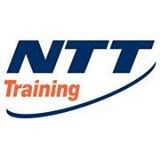|

National Technology Transfer, Inc.
presents
NFPA 70E Arc Flash Electrical Safety with Hands-On Practical Skills Training On-Site Training
This training instructs participants on the electrical safety skills needed to perform routine electrical maintenance tasks at less than 1000 volts just as they would in the field.
Course Description/Agenda
Go beyond the theory & knowledge training you're used to. Advance to hands-on
practical skills and application safety training. This seminar is designed to
save lives, and indeed it has. This is NTT Training's foundation seminar for
electrical qualification updated to the 2015 NFPA 70E.
This training instructs participants on the electrical safety skills needed
to perform routine electrical maintenance tasks at less than 1000 volts just as
they would in the field.
Student are encouraged to bring their own PPE to use in the hands-on
labs:
- Meter
- Gloves
- Tools
- Arc-rated Clothing (PPE Categories 2 and 4)
What You Will Learn
Topics covered during this training include:
Understanding the NFPA 70E, and the changes in the 2015 edition
(This is designed for a qualified person)
- Apply OSHA rule 1910.331-335 training requirements and NFPA 70E
standards
- Understand the effect of maintenance on equipment and how it reduces
injury
- Test instruments making contact with energized parts
- Perform safe electrical work practices and understand arc flash
hazards and boundaries
- Updated tables and Approach Boundaries: Understand the impact of the
2015 change -- "hazard analysis" has been replaced with "risk
assessment"
- Construction and maintenance work has been separated from outdoor
work
- New requirement 320.3 (A)(1) covers risk assessment associated with
battery work
Practical Application discussion and hands-on lab activities
include:
- Simple / Mechanical LOTOTO , (NO Verify absence of voltage)
- 120/208 Volt disconnect. Electrical LOTOTO , Verify absence of
voltage
- Check amps (a meter task)
- Check volts (a meter task)
- Change fuses
- MCC Troubleshoot
- Using electrical diagrams
- Selecting and using voltmeters (electrical test equipment and
special tools)
Workshop Agenda
Overivew: NFPA 70E Standard
- Article 90 Introduction to NFPA 70E overview
- Key definitions in Article 100
- Determine the breakdown of responsibilities in your facility
The Hazard Of Electricity
- Basic of Electricity
- Arc Flash Hazard PPE Categories
- Electrical Hazards
- Shock
- Arc Flash
- Arc Blast
General Requirements For Electrical Safety-Related Work Practices
(Article 110)
- The Electrical Safety Program
- Training Requirements
- Relationships with Contractors
- Use of Equipment
- Test Instruments
- Portable Electric Equipment
- Extension Cords
- GFCI's
- Underground Electrical Lines and Equipment
Establishing An Electrical Safe Work Condition (Article 120)
- The six-step LOTO process
Work On Or Near Exposed Energized Parts (Article 130)
- Limitations for working when exposed to energized parts
- Hazard analysis
- Energized Electrical Work permit requirements
- Energized Electrical Work
- Permit Approval process
- Description of Safe Work
- Practices to be employed
- Energized Electrical Work permit Exemptions
Shock Protection Boundaries
- Shock Risk Assessment
- Establishing Shock Protection Boundaries
- Using the AC and DC tables
- Approach Requirements for Qualified Persons
- Approach requirements for Unqualified Persons
Arc Flash Boundary
- The Arc Flash Risk Assessment
- Establishing the Arc Flash Boundary
- PPE within the Arc Flash Boundary
- Equipment labeling requirements
Other Precautions
- Alertness / Situational Awareness
- Blind Reaching
- Illumination
- Conductive articles being worn
- Conductive materials
- Confined or enclosed work space
- Doors or hinged panels
- Housekeeping duties
- Use of flammable materials
- Anticipating failure
- Routine opening and closing of circuits
- Reclosing circuits after protective device operation
Personal & Other Protective Equipment
- General: Responsibilities
- Care
- PPE Specifics
- Other PPE
Interpreting Equipment Labels
- Arc-flash information
- Shock protection information
- Selecting PPE
- Boundary Selection
Using The Tables
- Identifying equipment and tasks
- Applicability of the tables
- Determining the table parameters
- Determining equipment meets installation requirements
- Determining equipment has been properly maintained
- Selecting PPE
Working Within The Limited Approach Boundaries To Overhead Lines
- Applicability
- Specific requirements
- Which rules apply: Applicability of other rules and standards
Safety-Related Maintenance Requirements
- General maintenance requirements
- Substations, switchgear assemblies, switchboards, panelboards, motor
control centers, and disconnect switches
- Premises wiring
- Controller equipment
- Fuses and circuit breakers
- Rotating equipment
- Hazardous (classified) locations
- Batteries and battery rooms
- Portable electric tools and equipment
- Personal safety and protective equipment
Safety Requirements For Special Equipment
- Electrolytic Cells
- Batteries and Battery Rooms
- Safety-Related Work Practices for Use of Lasers
- Power Electronic Equipment
- Research and Development Laboratories
Practical Application discussion and hands-on lab activities
include:
Participants will not be required to don the NTT personal protective
equipment (PPE) clothing for task performance. Participants are encouraged
to bring their own electrical PPE to class. This provides an opportunity for
participants to verify the ratings and conditions of the PPE they use in the
field under the instructor's guidance.
Activity Description
Students will use the appropriate procedure checklist to perform each
task. When student is not performing a task, they will use the appropriate
checklist to audit the task performance of other personnel as assigned by
the instructor. Students are to complete all assigned written exercises.
Training Topics Include
- Discussion of OSHA and 70E requirements for demonstration of skills.
- Overview of MCC Trainer, associated equipment and PPE.
Hands-On Lab Procedure
- Inspect, Don, and Use Personal Protective Equipment (PPE)
- Verify an Electrically Safe Work Condition
- Troubleshoot Motor Control Center (MCC Bucket) Control Circuit
|
 Add to favorites
Add to favorites Email this page
Email this page

 On-Site Training
On-Site Training Seminar
Seminar